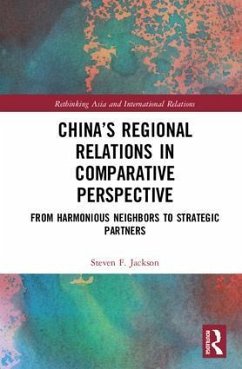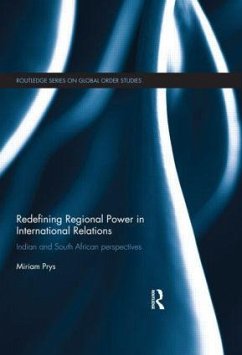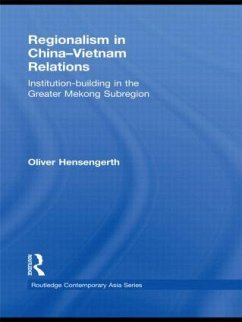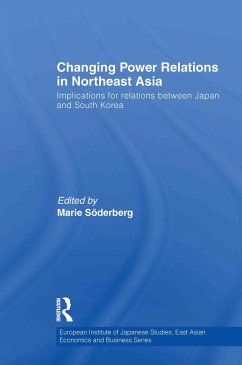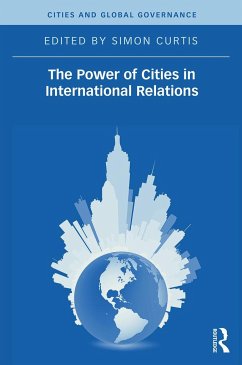
Power Relations and Comparative Regionalism
Europe, East Asia and Latin America
Herausgeber: Kim, Min-Hyung; Caporaso, James A.
Versandkostenfrei!
Versandfertig in 1-2 Wochen
167,99 €
inkl. MwSt.
Weitere Ausgaben:

PAYBACK Punkte
84 °P sammeln!
Three trends have dominated the political economy of integration during the last two decades: globalization, economic nationalism, and regionalization. This book explores comparative regional integration, focusing on both intra regional integration and relations among regions in the context of power. The most common focus of integration studies has been on the logic of cooperation, but there is another logic of integration: power. The relevance of power today is represented by the relations within the Eurozone, especially between creditors and debtors. By the same line of reasoning, integratio...
Three trends have dominated the political economy of integration during the last two decades: globalization, economic nationalism, and regionalization. This book explores comparative regional integration, focusing on both intra regional integration and relations among regions in the context of power. The most common focus of integration studies has been on the logic of cooperation, but there is another logic of integration: power. The relevance of power today is represented by the relations within the Eurozone, especially between creditors and debtors. By the same line of reasoning, integration in Asia cannot ignore the respective roles of China, Japan, and Korea, nor the unresolved disputes about Taiwan, Hong Kong, and the islands in the South China Sea. This edited volume addresses the role of power in regional integration in three contexts: (1) the role of hegemonic external actors (the US and China) in regional integration; (2) the role of core states within regions (Germany, China , Japan, and Brazil); and (3) the role of noncore states- smaller and middle range powers (Italy and Greece in Europe; South Korea and Malaysia in Asia; and Argentina, Colombia, Uruguay, and Paraguay in Latin America). This book will benefit students and scholars of international relations and comparative political economy, especially those with an interest in integration studies and comparative regionalism.





